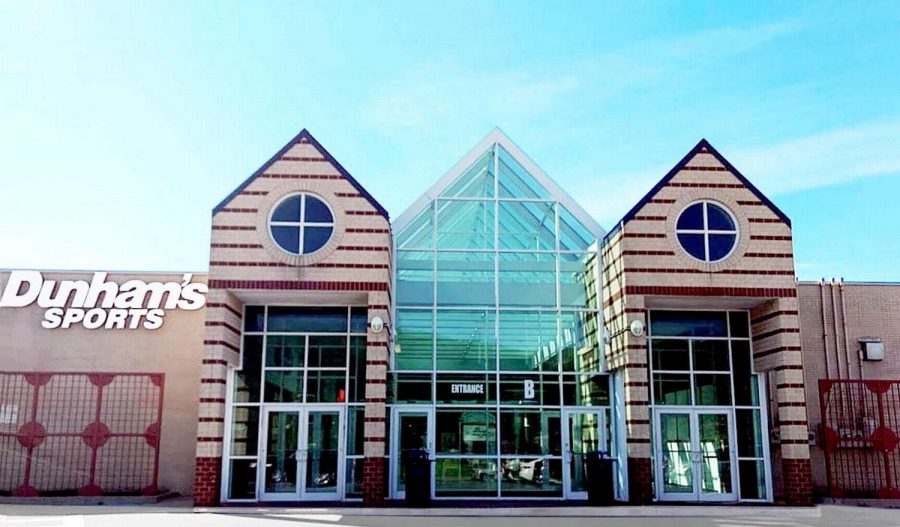Casino moves forward in State College; meets mixed reactions
March 2, 2023
The Pennsylvania Gaming Control Board (PGCB) voted unanimously January 25 to approve a location request under a Category 4 slot operator license from SC Gaming OpCo, paving the way for the construction of a proposed casino in College Township.
The decision came more than two years after SC Gaming owner Ira Lubert won a bid for $10,100,101 on a Category 4 license and the right to locate a casino within PA. The category of license allows a casino entity to operate between 300 to 750 slot machines, with room for the entity to petition for up to 30 table games at the time of opening, and ten additional after one year of operation.
Financially, the Board determined that the casino would cost nearly $135 million to construct and require an opening staff of about 350.
Lubert and his company have revealed the operation of the proposed casino to be overseen by entertainment company Bally’s Corporation, which will seek to open with the maximum-allowed 750 slot machines and 30 table games, along with “quick-serve food and beverage outlets,” a retail room for sports wagering, and a stage for live entertainment. Lubert is seeking to locate the casino within the 94,000 square-foot area of the Nittany Mall previously operated by Macy’s Department Store.
The decisions were met with mixed reactions among community members. For those opposed to the casino, social harm and disregard of the community were of chief concerns.
“Many other Centre County residents like me were bitterly disappointed to hear that the PGCB turned a deaf ear to the extensive and vehement local opposition to the proposed Nittany Mall Casino,” State College pastor Zachary Simmons posted on Twitter.
“We need an IKEA or a Dave & Busters in State College, not a seedy casino that will attract human traffickers and drug dealers in this college town,” Sandi Duverneuil said in a January 26 Twitter post. “Zero respect given to community’s input. Shame on the officials who turned a blind eye.”
That community input has been given since the casino was first proposed in September of 2020, with hundreds of community members speaking for or against the casino.
In April 2022, WTAJ News reported that local resident Andrew Shaffer compiled community letters against the casino and posted them outside the proposed site. Shaffer ultimately collected over 500 letters and was able to cover the entire width of the site’s inside entrance.

That same report took input from Nittany Hotel Group managing-partner John Delozier, who spoke on claims of potential business impact of the casino.
“I could easily understand arguments that people make against the casino; however, I’ve seen the good that can come from this,” he said. “A casino at the Nittany Mall gives the entire hospitality industry one more thing to promote and that’s what we need coming off these really, really tough years.”
Other public comments have appeared in hundreds of newspaper letters, board meetings, and social media posts. In a September 23, 2022 meeting of the Penn State Board of Trustees, over 220 community members appeared to give comments on the casino, though Board Chair Matthew Schuyler affirmed that the University would take no action on the matter.
“Decisions regarding its opening are made by local municipalities and the Pennsylvania Gaming Control Board … the Board of Trustees appropriately does not have a stance on the project, nor does the Board have the means to promote or stop the development of a private, legal operation,” meeting minutes said.
Those local municipalities have been quick to indirectly rebuke part of Schulyer’s comments, saying they also have no power over the casino.
In an October 6 College Township meeting, board members sought the legal opinion of township Solicitor Louis Glantz to examine their options over the casino. Glantz opined in the meeting that the township no longer held a legal “opt-out” power that it once did, and that the township could not and should not take any action to delay or deny the casino-approval process. Any such action would open the township up to lawsuits that would exceed $20.1 million, he said.
The board had previously refused to use their “opt-out” powers— which were later diminished in 2019 under the X ACT— when PA municipalities and counties were given the opportunity in 2017 to approve or disapprove of mini-casinos within their borders. More than 400 municipalities had voted to opt-out of casinos by December of 2017, with Ferguson, Patton, and Harris townships among them.
The township has also sought investigations into crime statistics and the general well being of PA municipalities with already existing Category 4 casinos.
In that same October College Township board meeting, 56 unique emails were received on the topic for discussion, while 12 residents spoke and 79 emails about the casino were received in an earlier September 15 meeting.
One of those September 15 emails was from Centre County resident Ray Bilger, a retired Foreign Service officer for the Department of State who supported the construction of the casino.
“I have lived in countries around the world where gambling was an integral part of life and in none of those countries have I experienced gambling addictions nor high crime related to any of those establishments,” he said. “It is my assessment that the proposed casino would have a very positive impact on the area from an entertainment and economic standpoint.”
Another September email was from Susan Streit, a 30-year resident of State College who instead opposed the casino.
“I am exceedingly troubled and distressed over the proposed plans for a casino in State College. Casinos bring a host of social ills… lawlessness, family breakup, fiscal irresponsibility, addiction, abuse of alcohol, violent behavior, and more,” she said. “The proposed casino would be a dangerous enterprise for any community, but especially one that is host to over 40,000 students.”



